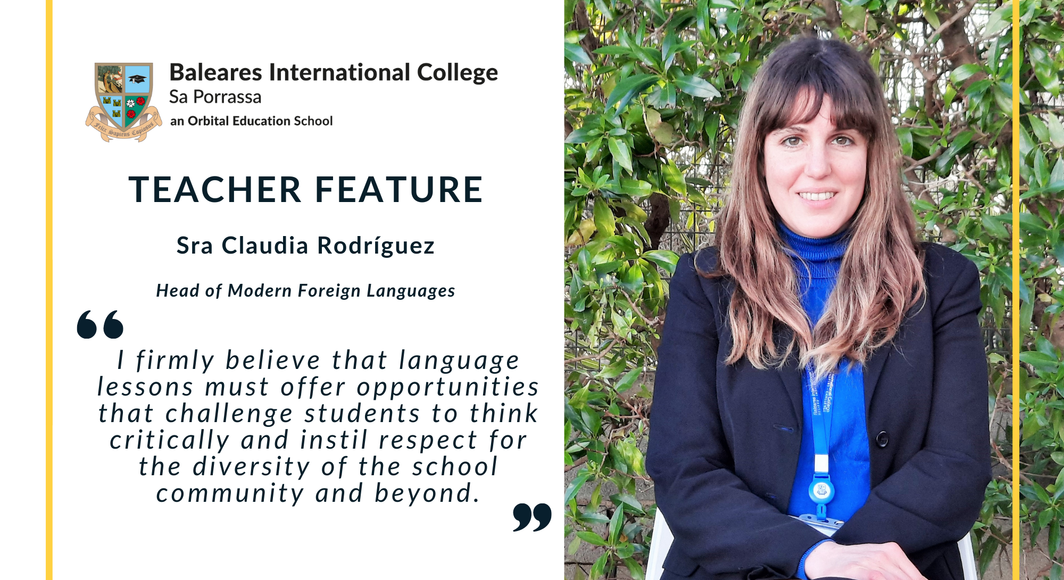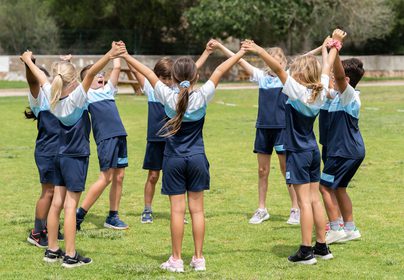"I firmly believe that language lessons must offer opportunities that challenge students to think critically and instil respect for the diversity of the school community and beyond."
Dear parents,
The Languages Department has taken a new direction this year. After years of experience as a teacher and a leader in some of the top independent schools in London and almost a year as a teacher at BIC, I have taken upon the leadership of Modern Languages in our school. I take this opportunity to inform you of some of the exciting changes that will be taking place in the teaching of languages.
I have been working to provide clarity and consistency to the languages curriculum. We are implementing a more communicative approach in class, less teacher-centered lessons and less exam-focus. I advocate for project-based learning, speaking development and cultural awareness.
I regard the study of languages as learning about a different culture, but most importantly, learning to respect the idiosyncrasies and particularities of different societies. I aim to enhance the cultural element in language lessons. This will, ultimately, help our students to become more tolerant and better equipped to challenge discriminatory behaviour. These are small steps that contribute to developing students into critical agents of change with a deep sense of social responsibility and awareness.
That said, rigorous exam preparation is of capital importance for older groups and, therefore, exam technique will be an essential part of the curriculum from an early start. Intervention sessions and exam-focused workshops for GCSE and A Level will be at the top of our priorities.
Last but not least, I want to emphasise the importance that I place in the fact that all students must receive the same experience, access the same content (differentiated, of course, according to their level and ability) and be assessed on the same objectives - so that we, teachers, can evaluate their progress, as individuals and as a cohort, with rigour.
In this regard, in the upcoming weeks, we will be carrying out Year group assessments in Spanish and German to evaluate which students should be placed in each set. This is a fair, transparent and accurate setting system that is being carried out across the school. This approach will, undoubtedly, benefit students - helping them progressing according to their level and ability.
I also take this opportunity to give you more information regarding the different groups. The Advanced group follows a different curriculum, First Language, which can be accessed by native speakers and also foreign students with a high level of the language. The Intermediate and Beginner group follows the Foreign Language specification. These two groups will have the same curriculum and, at the end of the academic year, will be assessed on the same contents. Nevertheless, the group size will be different - Beginners will benefit from smaller classes where they can develop communication and written skills, while Intermediate will focus on improving their fluency and on embedding more complex linguistic structures.
I hope you are as excited as I am about the new direction of Languages. I firmly believe that language lessons must offer opportunities that challenge students to think critically and instil respect for the diversity of the school community and beyond. I also expect that the students will perceive the learning of languages as a fun, useful, exciting and rewarding part of their education.
Yours sincerely,
Sra Rodríguez
Head of Modern Languages



